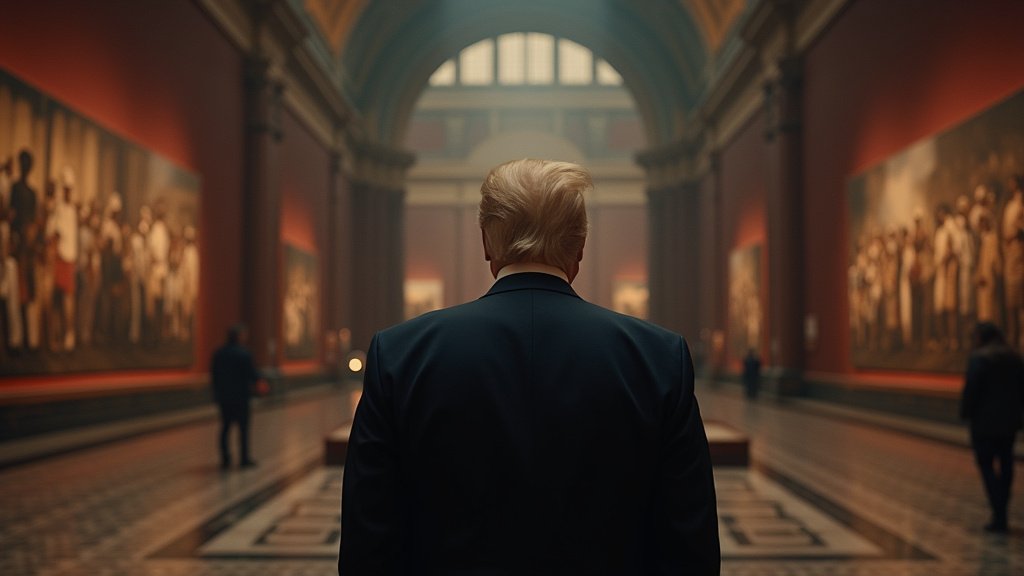A recent column published on July 5, 2025, posits that the United States government is increasingly focused on escalating a domestic “culture war” rather than actively pursuing efforts to bridge societal gaps within the nation. The analysis, presented in the column, suggests that this internal focus and the tactics employed are contributing factors in a perceived decline of the country’s international appeal.
The Premise: An Escalating Culture War
According to the column’s perspective, the current U.S. administration’s approach involves aggressive measures seen as contributing to internal divisions. Rather than fostering unity, the government’s actions are interpreted by the column as deliberately widening existing societal rifts through contentious policy shifts.
Dismantling Diversity, Equity, and Inclusion
One key area highlighted by the column as evidence of this intensifying “culture war” is the government’s stance on policies aimed at promoting diversity, equity, and inclusion (DEI). The column asserts that the administration is aggressively dismantling initiatives and policies designed to advance DEI goals across various sectors. This move, according to the column, is not merely a policy adjustment but a strategic part of the broader cultural conflict.
DEI policies typically seek to ensure fair treatment, access, opportunity, and advancement for all people, while at the same time striving to identify and eliminate barriers that have prevented the full participation of some groups. The aggressive rollback of such measures is framed by the column as a significant component of the government’s engagement in the domestic “culture war,” signaling a shift away from previously held national aspirations regarding inclusivity.
Tariffs and Cultural Exchange
Another action cited in the column is the imposition of a 100 percent tariff on foreign-made films. This drastic measure on imported cinematic works is presented in the column as having significant implications beyond economic protectionism.
According to the column, this substantial tariff is viewed by many as retaliation against Hollywood. This interpretation suggests the tariff is not purely a trade issue but potentially linked to domestic cultural or political disagreements involving the U.S. film industry. The column implies that targeting foreign films with such a high tariff, especially if perceived as retaliatory against a domestic industry sector, further underscores the inward-looking and conflict-driven nature of the government’s current approach, as argued by the columnist. Such a move could have chilling effects on international cultural exchange and the accessibility of global perspectives within the U.S.
Political Theater and Power Consolidation
The column offers a critical analysis of the motivation behind these actions, suggesting that this perceived “war” on cultural and social fronts operates as political theater. This implies that the conflict is, at least in part, a performance designed for public consumption and political gain.
The underlying strategy, according to the column’s interpretation, involves using manufactured hatred as a tool. By identifying or creating cultural wedge issues and portraying certain groups or ideas negatively, the government is seen by the column as attempting to mobilize a support base through division. The ultimate aim of this political theater, as posited by the column, is to consolidate power. This suggests that the cultural battles are not ends in themselves, but means to achieve and maintain political dominance by leveraging societal polarization.
Impact on Global Standing
The central thesis linking these domestic actions to the international sphere is the column’s assertion that these strategies contribute to the U.S. losing its appeal. A nation perceived as being deeply fractured by internal cultural wars, aggressively dismantling inclusive policies, and imposing retaliatory tariffs on cultural goods may present a less attractive or reliable image on the global stage.
The column implies that when a government prioritizes internal cultural conflict and power consolidation through division over bridging divides and fostering open exchange, it can alienate potential allies, damage its reputation as a stable and forward-thinking partner, and erode the soft power that contributes significantly to a nation’s global appeal. The focus on what the column terms “manufactured hatred” suggests a climate potentially less welcoming to international talent, ideas, and partnerships.
In conclusion, the column published on July 5, 2025, presents a stark picture of a nation whose government, in the columnist’s view, is consumed by domestic cultural conflict. By citing the aggressive dismantling of DEI policies and the imposition of a 100 percent tariff on foreign films (seen by many as retaliation against Hollywood), the column argues that these actions constitute political theater aimed at consolidating power through division. This internal strife and the methods employed, the column contends, are directly contributing to a decline in the United States’ appeal on the international stage [7].













